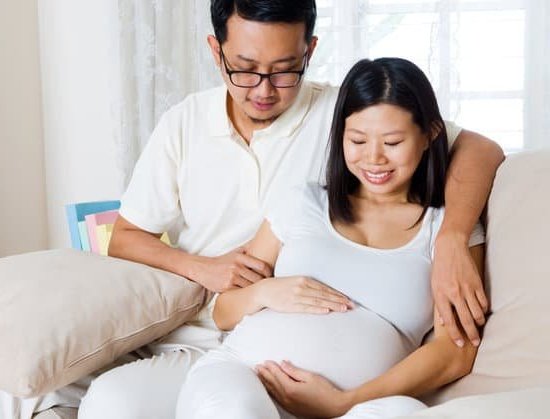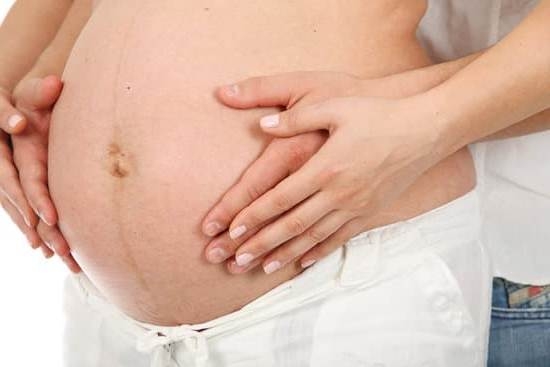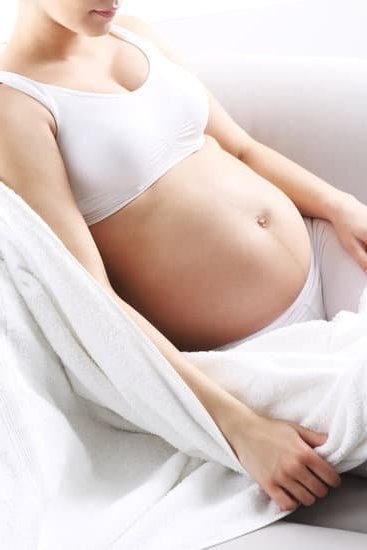How early can you get pregnancy symptoms? Understanding the early signs of pregnancy is important for individuals who are trying to conceive or may have had an unexpected pregnancy.
Knowing when to expect these symptoms can help individuals recognize and confirm their pregnancy in a timely manner. This article will provide an overview of the menstrual cycle, explain how ovulation and conception occur, discuss the early signs of pregnancy, detail physical signs to look out for, explain at-home pregnancy tests, explore factors that impact the onset of symptoms, and offer coping mechanisms for managing early pregnancy symptoms.
The menstrual cycle plays a crucial role in understanding how early one can experience pregnancy symptoms. Ovulation and conception are key components of this process and knowing when they occur can give insight into when early pregnancy symptoms might start. By being educated about the changes that occur in the body during this time, individuals can be better prepared to recognize potential signs of pregnancy as soon as they arise.
Early pregnancy symptoms vary from woman to woman but understanding what to look for is essential. From fatigue and nausea to breast tenderness and heightened sense of smell, there are a number of common indicators that could signal the beginning of a pregnancy. Recognizing these symptoms and understanding how they might differ from person to person can help individuals accurately assess their own situation.
Understanding the Menstrual Cycle
The menstrual cycle is the monthly process a woman’s body goes through to prepare for a possible pregnancy. It typically lasts about 28 days, although it can vary from woman to woman. The cycle begins on the first day of menstruation and ends the day before the next period starts.
Ovulation, which occurs around the middle of the menstrual cycle, is when an egg is released from one of the ovaries and is available for fertilization. If sperm fertilizes the egg during this time, conception occurs. Pregnancy symptoms can start as early as one week after conception, which may be even before you miss your period.
When Pregnancy Symptoms Can Start in Relation to the Menstrual Cycle
After conception, the fertilized egg travels down into the uterus and implants in the uterine wall. This process takes place about 6-12 days after ovulation. Once implantation occurs, your body begins producing hCG (human chorionic gonadotropin), the hormone detected by pregnancy tests.
This hormonal change may bring about various symptoms such as fatigue, breast tenderness, nausea, and frequent urination. Keep in mind that not all women will experience these symptoms at such an early stage; some may not notice any changes until several weeks into their pregnancy.
It’s important to pay attention to your body and be aware of how early you can get pregnancy symptoms if you are trying to conceive or are sexually active. Understanding your menstrual cycle and knowing when early pregnancy symptoms could appear can empower you to take control of your reproductive health and seek medical advice if needed.
Early Pregnancy Symptoms
One of the most common questions among women who are trying to conceive or suspect they may be pregnant is: “How early can you get pregnancy symptoms?” The answer varies from woman to woman, but generally, early pregnancy symptoms can start as soon as one week after conception. This means that some women may notice signs of pregnancy before they even miss their period.
Some of the earliest signs of pregnancy include implantation bleeding, which occurs when the fertilized egg attaches to the uterine lining; a missed period; and breast tenderness. Additionally, many women experience fatigue, nausea (morning sickness), frequent urination, and food aversions or cravings in the early weeks of pregnancy.
It’s important to note that not all women will experience all of these symptoms, and some may experience none at all. Each woman’s body reacts differently to the hormonal changes that occur during early pregnancy.
In addition to physical symptoms, there are also emotional and psychological changes that some women may experience in early pregnancy. Mood swings, heightened emotions, and increased anxiety or excitement are all common during this time. It’s essential for women who suspect they may be pregnant to pay attention to their bodies and take note of any unusual changes they may experience.
Consulting with a healthcare professional for confirmation is recommended if pregnancy is suspected. Understanding and recognizing early pregnancy symptoms can help ensure proper prenatal care and a healthy start for both mother and baby.
| Early Pregnancy Symptoms | Timeline |
|---|---|
| Implantation bleeding | 1 week after conception |
| Missed period | As early as 1-2 weeks after conception |
| Breast tenderness | Potentially as early as 1-2 weeks after conception |
These symptoms and their timeline serve as useful information for women who are trying to assess whether they might be pregnant. However, it’s important to remember that every woman’s experience with pregnancy is unique so it’s always best to consult with a healthcare professional for personalized advice based on individual circumstances.
Signs to Look For
When trying to conceive or suspecting that you may be pregnant, it is important to be aware of potential early signs and symptoms. Understanding the signs to look for can help in confirming whether pregnancy is a possibility.
Some of the physical signs to watch for in early pregnancy include breast tenderness, fatigue, nausea or vomiting (also known as morning sickness), and frequent urination. Changes in the body that could indicate pregnancy also include a missed period, heightened sense of smell, and mood swings.
During the early stages of pregnancy, it is common to experience breast tenderness as the body begins to prepare for breastfeeding. Fatigue is also a common symptom due to the hormonal changes taking place in the body. Nausea or vomiting, commonly referred to as morning sickness, can begin as early as 2-4 weeks after conception.
Frequent urination occurs because of hormonal changes and increased blood flow to the kidneys. Additionally, a missed period is often the first sign that prompts women to suspect they may be pregnant.
It is important to note that every woman’s experience with early pregnancy symptoms can vary. Some women may not experience any symptoms at all during the early stages of their pregnancies while others may experience several. Additionally, some women may only notice one or two symptoms whereas others may have multiple noticeable changes in their bodies.
Overall, knowing what signs to look for when it comes to early pregnancy symptoms can help individuals determine whether they should take a pregnancy test or consult with a healthcare professional for further guidance on next steps. If experiencing any concerning or severe symptoms, it is crucial to seek medical advice promptly.
Pregnancy Tests
Many women wonder how early can you get pregnancy symptoms, and the answer varies from woman to woman. Understanding the menstrual cycle is crucial in determining when pregnancy symptoms may start. In a typical 28-day menstrual cycle, ovulation usually occurs around day 14. Conception can happen shortly after ovulation, and this is when the body begins to undergo changes in response to the pregnancy.
The early signs of pregnancy can manifest as early as a week after conception, although for some women, they may not appear until a few weeks later. Common early pregnancy symptoms include fatigue, nausea or morning sickness, breast tenderness, frequent urination, and mood swings. However, it’s essential to note that these symptoms can vary from woman to woman and even from one pregnancy to another for the same woman.
In addition to these physical symptoms, there are also emotional and psychological signs that could indicate early pregnancy. Some women might experience heightened emotions or mood swings as their hormone levels change in response to the pregnancy. It’s important to be aware of these various indications so that if you suspect you might be pregnant, you can take appropriate action such as taking a home pregnancy test or consulting with a healthcare professional for confirmation.
| Early Pregnancy Symptoms | Description |
|---|---|
| Fatigue | Feeling unusually tired or exhausted |
| Nausea | Feeling queasy or experiencing morning sickness |
| Breast Tenderness | Increased sensitivity or soreness in the breasts |
Factors Affecting the Onset of Symptoms
Age, Lifestyle, and Health
The timing and severity of pregnancy symptoms can vary greatly from woman to woman, and several factors can influence when these symptoms appear. Age, lifestyle, and overall health are key determinants in the onset of early pregnancy symptoms. Younger women may experience symptoms sooner due to their higher levels of reproductive hormones, while older women may not experience symptoms until later in the first trimester.
Additionally, a woman’s overall health and lifestyle choices can also impact the timing of pregnancy symptoms. Women who are physically fit and have a healthy lifestyle may notice symptoms later than those who do not.
Multiple Pregnancies
In cases where a woman is pregnant with multiples, such as twins or triplets, the onset and severity of pregnancy symptoms can be more pronounced. The increased level of hormones in the body due to multiple fetuses can lead to earlier onset and heightened intensity of early pregnancy symptoms. This may include more severe morning sickness, fatigue, and breast tenderness.
When to Consult a Healthcare Professional
If you suspect you might be pregnant but have not yet experienced any symptoms, it’s essential to consult a healthcare professional for confirmation. They can provide guidance on when to take a pregnancy test and discuss any concerns related to your age, lifestyle, or health that might impact the onset of pregnancy symptoms. Seeking medical advice will ensure that you receive proper care and support throughout your pregnancy journey.
Understanding the various factors that can affect the onset of early pregnancy symptoms is important for women who are trying to conceive or suspect they may be pregnant. By considering age, lifestyle choices, and other influencing factors, women can better understand what to expect during early pregnancy and seek appropriate medical care if needed.
Coping With Early Pregnancy Symptoms
Dealing with early pregnancy symptoms can be both an exciting and challenging time for many women. It is important to understand how to cope with these symptoms in order to ensure a healthy and comfortable pregnancy. Here are some tips for managing early pregnancy symptoms:
- Listen to your body: Pay attention to what your body is telling you and be mindful of any changes or discomfort you may be experiencing. Rest when you need to, and prioritize self-care during this time.
- Stay hydrated: Drinking plenty of water can help alleviate some common early pregnancy symptoms such as nausea and fatigue. Aim to drink at least 8-10 glasses of water per day, and consider adding electrolyte-rich beverages if necessary.
- Eat small, frequent meals: Many women experience nausea and food aversions in the early stages of pregnancy. Eating small, frequent meals throughout the day can help manage these symptoms and keep blood sugar levels stable.
- Seek support: Dealing with early pregnancy symptoms can be overwhelming, so don’t hesitate to reach out for support from loved ones or healthcare professionals. Joining a prenatal support group or speaking with a healthcare provider can offer valuable guidance during this time.
- Practice relaxation techniques: Stress and anxiety can exacerbate early pregnancy symptoms, so practicing relaxation techniques such as deep breathing, meditation, or yoga can help alleviate discomfort and promote overall well-being.
Remember that every woman’s experience with early pregnancy symptoms is unique, so it is essential to find coping strategies that work best for you. If you are experiencing severe or concerning symptoms, do not hesitate to seek medical advice from a healthcare professional as soon as possible.
Conclusion
In conclusion, knowing the early signs of pregnancy is crucial for anyone who may be trying to conceive or who suspects they may be pregnant. Understanding the menstrual cycle and the window of time in which conception can occur is key to recognizing pregnancy symptoms as early as possible.
As discussed in this article, common early pregnancy symptoms can include fatigue, nausea, breast tenderness, and frequent urination. These symptoms can vary from woman to woman and may begin as early as a week or two after conception.
It’s important to pay attention to physical signs such as missed periods, changes in appetite, and heightened sense of smell, which could indicate pregnancy. Furthermore, taking an at-home pregnancy test can provide accurate results as early as a few days before a missed period. However, it’s essential to consider factors that could influence the onset of symptoms, such as age and overall health.
Overall, if you suspect you may be experiencing early pregnancy symptoms, seeking medical advice is recommended. A healthcare professional can provide proper confirmation and guidance for managing any discomfort or concerns related to early pregnancy. By staying informed about the signs of pregnancy and being proactive in seeking assistance when needed, individuals can navigate the early stages of pregnancy with confidence and peace of mind.
Frequently Asked Questions
How Soon Do Pregnancy Symptoms Start?
Pregnancy symptoms can start as early as the first week after conception, but for most women, they typically begin around the fourth or fifth week of pregnancy. Symptoms can include missed periods, nausea, breast tenderness, and fatigue.
Can You Get Pregnancy Symptoms in Week 1?
It’s rare to experience pregnancy symptoms in the first week after conception because at this stage, the fertilized egg hasn’t even implanted in the uterus yet. However, some women may notice very early signs like implantation bleeding or cramping.
How Soon Can You Know if You’re Pregnant?
You can usually know if you’re pregnant by taking a home pregnancy test around one to two weeks after a missed period. These tests work by detecting the hormone hCG in your urine, which is produced when a fertilized egg implants in the uterus.
Some women may also experience early signs like implantation bleeding or symptoms like nausea before testing positive on a pregnancy test.

Welcome to my fertility blog. This is a space where I will be sharing my experiences as I navigate through the world of fertility treatments, as well as provide information and resources about fertility and pregnancy.





